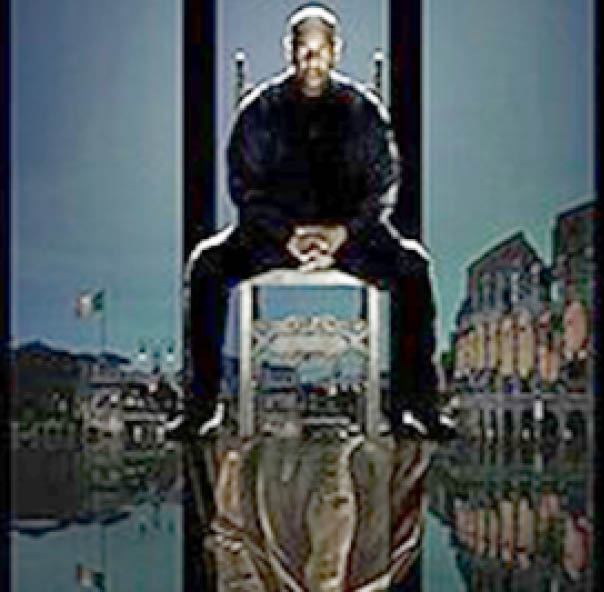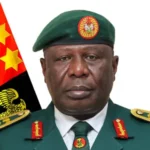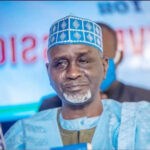In Sicily, an Italian drug lord and his child pull up in a jeep to a secluded villa. Strewn across the rustic courtyard, which, on better days, would be an ideal vacation spot, are the bloodied, dismembered bodies of a goon army. The man exits the jeep with a pistol, leaving the kid in the vehicle. He and one of his henchmen enter the home, where they discover more carcasses, whose causes of death—riddled with bullets, their faces cleaved by a butcher’s knife—grow increasingly gruesome. Noted hitman turned ghost Robert McCall (Denzel Washington) sits beneath two gunmen. Is McCall the prisoner, or are they? He, of course, dispatches them with ease, grabbing a set of keys from the dead drug lord’s body that hold what McCall came to retrieve.
You won’t guess what mundane package McCall has just murdered an army of killers to get. But it doesn’t really matter. While the ham-fisted McGuffin doesn’t serve the rest of the film, this opening scene—from its stomach-churning violence to the reliance on impractical effects—indicates where this once enjoyable nuts-and-bolts action franchise has gone wrong.
Antoine Fuqua’s “The Equalizer 3” is not just what many assume will be the last film in the franchise; it’s the fifth overall collaboration between the director and Washington. Their partnership, on its face, is puzzling. Sure, their first collaboration, “Training Day,” netted Washington his lone Best Actor win. But their successive films have only gotten harsher and dumber since that triumph. What exactly does Washington get out of these films? It’s a relationship that often recalls the run Anthony Mann and Jimmy Stewart experienced in their eight pictures together (though, to be sure, Fuqua-Washington has mined far poorer thematic treasures) when Stewart left his prestige perch, his good-guy image, and aw-shucks mannerisms to explore darker stories in Mann’s freeing Westerns. You can tell Washington gets the same pleasure here, not caring if the audience experiences the same adventurous sensations he does.
Because, make no mistake, “The Equalizer 3” is hot garbage. It’s also a fascinating but failed attempt by Fuqua and Washington to make their own Mann-Stewart film. Consider how the Western genre stains this picture. During McCall’s raid on the villa, he is critically wounded and eventually discovered by a local cop, Gio (Eugenio Mastrandrea), who takes him to a quaint seaside Italian village, where a local doctor named Enzo (Remo Girone) treats the hitman’s wounds. While recuperating in the restful town, McCall learns to love the people and the peace they provide him. Though a local young gang leader, Marco (Andrea Dodero), looms over them, McCall, who says he’s merely passing through, would rather avoid intervening. Like any Western, when push comes to shove, McCall will defend them while teaching these acquiescing people how to stand up to their oppressors.
Egypt Air breaks silence on death of London-bound Nigerian passenger
UNICEF Nigeria appoints Ali Nuhu as Champion
Fuqua and cinematographer Robert Richardson (“Platoon” and “A Few Good Man”) provide further Western details through chiaroscuro lighting. Washington’s silhouette spells danger, while his weary frame expresses a close relationship to death. Richardson also captures the actor from extreme low angles, a la John Ford, painting heroic compositions. The problem, however, is they’ve made McCall so vicious that we’re not quite sure if we should be rooting for him to kill. While it makes sense for the character to show greater brutality—after all, in the first “Equalizer,” he was once a calm man idling in retirement—now he’s a man fully bathed in blood and guts again. Even Washington can’t fully pull across that line, especially when the script is so weak.
Take the primary subplot, which sees Dakota Fanning reteaming with Washington—the two previously starred in “Man on Fire”—this time, as CIA Agent Emma Collins. McCall phones a tip to Collins’ desk that’ll change her career; the information nonsensically takes her from working a call centre to fieldwork. Her arc, nevertheless, is flat-out bad: She never proves herself to be a capable agent, and her case, involving an Italian drug ring, barely connects to McCall’s stay in the village. Fanning appears overmatched in the few scenes the pair occupy together as she unsuccessfully attempts to channel Jessica Chastain’s turn in “Zero Dark Thirty.”
I wish I could say the action fares better, but the staging lacks imagination; the editing doesn’t snap; the score sounds rote; the film would rather go gory and gruesome to paper over its limp choreography than craft anything bordering on memorable. The film’s only saving grace is how much fun Washington appears to be having. He makes some surprising decisions that initially feel like outtakes because of how random they are. Is he still playing McCall as the grieving widower, or does he want to push this character further into psychopathic territory?
It’s become old hat (and kind of lazy) to compare every contemporary action film to “John Wick,” but this franchise, which launched the same year as the first “John Wick,” struggles to evolve like Keanu Reeves’ films did. This trilogy has no emotional core, no narrative continuum, and no pleasure in the genre it calls home. Instead, in its successive offerings, “The Equalizer” franchise is tragically uneven.
Culled from www.rogerebert.com

 Join Daily Trust WhatsApp Community For Quick Access To News and Happenings Around You.
Join Daily Trust WhatsApp Community For Quick Access To News and Happenings Around You.


